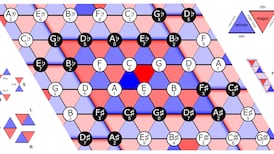Galway conference hears how data from fishing industry would benefit sustainability, writes LORNA SIGGINS,Marine Correspondent
THEY MAY HAVE ONE of the toughest and most romanticised occupations on the blue planet, but many people are “suspicious” of those who make their living from the sea, a leading US marine scientist has said in Galway.
It may be due to a dearth of knowledge about the marine environment – but technology tends to be trusted more than the people who actually work the grounds, Dr Steve Murawski, chief science adviser with the US National Oceanic and Atmospheric Administration (Noaa), has suggested.
Murawski, who was Noaa’s adviser on US president Barack Obama’s Ocean Policy Task Force, was keynote speaker at an international conference hosted last week by the Marine Institute in Galway on fishery- dependent information.
He contended that fishermen could increase their credibility with the public by contributing to data collection about their working environment.
Such data could prove invaluable in marine spatial planning, in protection of sensitive habitats such as deepwater coral, in reducing discards of unwanted catch, and in tackling global issues such as the impact of climate change, he said.
In the US, by-catches or accidental catches of sensitive species such as loggerhead and leatherback turtle, had fallen dramatically due to integration of information yielded by fishing vessels. Seabird fatalities had also reduced significantly in certain areas, he said.
One of the big challenges relates to trust on both sides, he acknowledged, as data collection was introduced initially for regulatory reasons.
Most vessels over a certain size are now satellite-tracked with vessel monitoring systems (VMS), and a number of technologies have been standard for some years in most wheelhouses, including electronic logbooks and sophisticated echo sounding equipment.
Scientific observers placed on fishing vessels for marine research are also required to collate information, but within boundaries that respect intellectual property rights, he said.
Integration of data is the key to greater understanding of the environment, and many fishermen could see benefits in relation to specific stock movements – and movements of competitors, Murawski said. Interestingly, enforcement agencies were not always so keen on complete transparency, particularly if they were monitoring certain targets, he noted.
However, he forecast a “new generation of co-operation” between fishermen and scientists, particularly when there is “less reason not to co-operate” due to the sustainability of the resource.
Reacting from the industry’s perspective, Irish Fish Producers’ Organisation chief executive Lorcan Ó Cinnéide told the conference that a “new understanding” was required between scientists, fishers and stock managers, but one that acknowledged achievement.
“If we agree to set targets for stock recovery that require closures, we need to be sure that there is some opportunity offered when the stock recovers,” he said.
“We do have a better relationship on the ground here in Ireland between the industry and scientists, through the Irish Fisheries Science Research Partnership,” he said, but science was a “human enterprise, as fallible as the rest”.
Scientists from some 30 states across Europe, the US, Africa, Asia and Australia attended the conference, which was opened by Dr Peter Heffernan, Marine Institute director.
For Lorcan Ó Cinnéide, the “great pity” was that some of the movers and shakers in fisheries management, in both the EU and the Department of Agriculture and Fisheries, did not participate in the four-day event.









